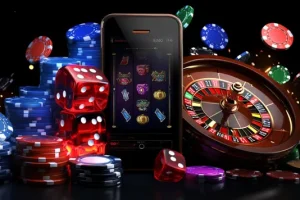Throughout history, gambling has been popular as a way to spend leisure time. During the Middle Ages, it was disapproved by the church. But as Europe emerged from the Renaissance era, card games such as blackjack and poker gained popularity.
The first casinos began to appear in Venice during the 17th century. These establishments offered a variety of games and attracted wealthy aristocrats.
Origins
Gambling has been around in one form or another for thousands of years. There are indications of rudimentary games of chance on ancient Chinese tiles and scenes on Greek and Roman pottery show that betting on animal fights was common. It was a popular activity even amongst the nobility in Europe during the Renaissance.
Throughout history, gambling has been both respectable and sinful. Society’s attitude towards gambling is dependent on customs, traditions, religion, morals, and the context in which it occurs. Even though gambling is a global industry with billions of dollars involved, many people feel that it has become corrupt and dangerous. Nevertheless, it has remained an extremely popular pastime for many people. The first casino was established in Venice in the 17th century.
Forms
Gambling is a pastime that has long been associated with excitement and risk. Its history can be traced back to ancient civilizations and it has shaped modern human society in many ways.
The earliest evidence of gambling dates from 2300 BC in ancient China. Researchers have discovered tiles that look like they were used in a basic gambling game. These ancient tiles are believed to be the precursors of keno slips, which were used in China as early as 200 BC.
Throughout the Middle Ages, gambling was widespread in Europe and laws were put in place to curb its popularity. However, it wasn’t until the 17th century that gambling reached a new level with the first state-approved casino in Venice. Known as Ridotto, it offered controlled gambling during the carnival season and established a precedent for future casinos.
Regulations
Gambling is a widespread international commercial activity that can take many forms. In some cases, gambling involves wagering items that have a value but are not real money. This can include collectible game pieces such as marbles or Magic: The Gathering cards. Regardless of its form, gambling is considered to be a form of entertainment and has been popular worldwide for centuries.
While gambling has been a popular pastime for centuries, it was also often banned or suppressed by law. However, in the late 20th century, it has become a popular activity again and casinos have become a cultural phenomenon worldwide. Some of the earliest examples of casino games include keno, poker, and roulette. These games have become extremely popular among players of all ages and backgrounds.
Taxes
Gambling is a popular pastime in most countries, but it hasn’t always been legal. Some governments have banned gambling, while others endorse it and regulate it. It’s also a popular industry that continues to evolve, as technology progresses and people seek new ways to gamble.
The history of gambling has a long and colorful past. The ancient Egyptians threw dice and played a game called senet that is similar to backgammon. The Romans also gamled, and they enjoyed games like tabula. In the Middle Ages, gambling was considered sinful, but that didn’t stop people from playing. The first modern casino was built in 17th-century Venice and was called Ridotto. It was exclusive and only allowed guests who were wearing masks. The casino grew in popularity and spread throughout Europe.
Legality
Gambling is a popular pastime worldwide, and it has been a part of human culture since ancient times. The earliest evidence of gambling dates back to Mesopotamia around 3000 BC, when primitive dice were discovered. The Chinese were known to be fond of betting, and they created a game called keno around 200 BC. It is believed that proceeds from this game helped to fund the construction of the Great Wall of China.
Throughout history, many governments have attempted to restrict gambling. This is apparent in the laws of ancient Rome, where people were fined for playing games of chance or betting on chariot races. However, despite attempts to curb gambling, the human penchant for wagering continued. It was not until the 17th century that organized gambling houses began to emerge.












